第122章 XV
Since the end of individuals and of states is the same, the end of the best man and of the best constitution must also be the same; it is therefore evident that there ought to exist in both of them the virtues of leisure; for peace, as has been often repeated, is the end of war, and leisure of toil. But leisure and cultivation may be promoted, not only by those virtues which are practiced in leisure, but also by some of those which are useful to business. For many necessaries of life have to be supplied before we can have leisure.
Therefore a city must be temperate and brave, and able to endure: for truly, as the proverb says, 'There is no leisure for slaves,' and those who cannot face danger like men are the slaves of any invader. Courage and endurance are required for business and philosophy for leisure, temperance and justice for both, and more especially in times of peace and leisure, for war compels men to be just and temperate, whereas the enjoyment of good fortune and the leisure which comes with peace tend to make them insolent. Those then who seem to be the best-off and to be in the possession of every good, have special need of justice and temperance- for example, those (if such there be, as the poets say) who dwell in the Islands of the Blest; they above all will need philosophy and temperance and justice, and all the more the more leisure they have, living in the midst of abundance. There is no difficulty in seeing why the state that would be happy and good ought to have these virtues. If it be disgraceful in men not to be able to use the goods of life, it is peculiarly disgraceful not to be able to use them in time of leisure- to show excellent qualities in action and war, and when they have peace and leisure to be no better than slaves. Wherefore we should not practice virtue after the manner of the Lacedaemonians. For they, while agreeing with other men in their conception of the highest goods, differ from the rest of mankind in thinking that they are to be obtained by the practice of a single virtue. And since they think these goods and the enjoyment of them greater than the enjoyment derived from the virtues ... and that it should be practiced for its own sake, is evident from what has been said; we must now consider how and by what means it is to be attained.
We have already determined that nature and habit and rational principle are required, and, of these, the proper nature of the citizens has also been defined by us. But we have still to consider whether the training of early life is to be that of rational principle or habit, for these two must accord, and when in accord they will then form the best of harmonies. The rational principle may be mistaken and fail in attaining the highest ideal of life, and there may be a like evil influence of habit. Thus much is clear in the first place, that, as in all other things, birth implies an antecedent beginning, and that there are beginnings whose end is relative to a further end. Now, in men rational principle and mind are the end towards which nature strives, so that the birth and moral discipline of the citizens ought to be ordered with a view to them. In the second place, as the soul and body are two, we see also that there are two parts of the soul, the rational and the irrational, and two corresponding states-reason and appetite. And as the body is prior in order of generation to the soul, so the irrational is prior to the rational. The proof is that anger and wishing and desire are implanted in children from their very birth, but reason and understanding are developed as they grow older. Wherefore, the care of the body ought to precede that of the soul, and the training of the appetitive part should follow: none the less our care of it must be for the sake of the reason, and our care of the body for the sake of the soul.